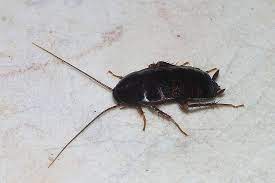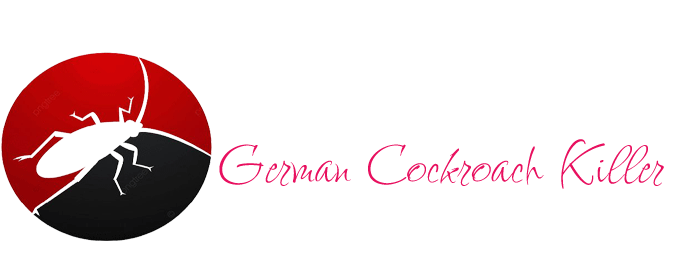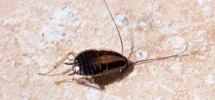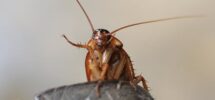Dealing with a cockroach infestation is one of the most unsettling pest problems that can occur in homes or offices. Just spotting a single cockroach is enough to send a shiver down anyone’s spine, and the thought of a full-blown infestation is enough to make most people squirm. Among the various types of cockroaches, the German cockroach is often the most notorious for invading indoor spaces, causing frustration and anxiety. Known for their rapid reproduction and ability to hide in the tiniest cracks, these pests are a major concern for many households. In response, various German cockroach killers and chemical treatments have been developed to control their populations. However, the widespread use of chemicals to combat cockroaches, including the German cockroach, raises several important questions about long-term effectiveness and environmental impact.

The Challenge of Traditional Cockroach Control
Chemical Pesticides: The Common Solution
Historically, chemical pesticides have been widely used to target roach populations. These chemicals, such as insecticides containing pyrethroids and other toxic substances, have been effective in reducing the number of cockroaches, including the German variety. However, over time, German cockroaches and other species have developed resistance to many of these chemicals, making traditional pest control methods less effective. This resistance is a result of natural selection, where only the cockroaches that are immune to the chemicals survive, breed, and pass on their resistance to future generations.
The Growing Problem of Resistance
This growing resistance to German cockroach killers poses a significant challenge to pest control efforts. Cockroaches, like many pests, are highly adaptable. Over generations, they can evolve to detoxify or neutralize chemical substances that once killed them. When these resistant cockroaches reproduce, they pass on these survival traits, leading to entire populations that are more difficult to control. What once was an effective method of pest management becomes increasingly ineffective, and the cycle of spraying chemicals continues, often leading to a frustrating and expensive battle.
Bait Aversion: A Compounding Issue
Why Cockroaches Avoid Toxic Baits
An additional issue is bait aversion, which occurs when cockroaches refuse to eat baits laced with chemicals because they have been contaminated with other substances, such as cleaning products, cigarette smoke, or even other insecticides. In the case of the German cockroach, which often thrives in kitchen and bathroom areas, the introduction of chemical baits and sprays may be ineffective because these cockroaches avoid the bait that is contaminated or poisoned. This behavior further complicates the efforts to control their populations.
A Shift Towards Sustainable Solutions
Repellent-Based Pest Management
As a result, pest control experts are exploring alternatives to chemical-based treatments. One of the emerging strategies is repellent-based pest management. Instead of focusing on killing the cockroaches outright, this approach aims to drive them away from the living space, discouraging them from taking up residence in the first place. Non-toxic repellents, such as essential oils, diatomaceous earth, or physical barriers, are gaining popularity as environmentally friendly ways to deter cockroaches, including the German cockroach, from invading homes.
Prevention: The Key to Long-Term Success
In addition to shifting toward repellents, a focus on prevention has become key in modern pest management. Since cockroaches, especially the German variety, are highly adaptable, the best way to handle an infestation is to keep them from entering your home in the first place. Sealing cracks and crevices, fixing leaks, and keeping your home clean are all essential steps in reducing the likelihood of a cockroach infestation. German cockroach killers, while useful in the short term, are not a long-term solution if the underlying environmental conditions that attract cockroaches are not addressed.

The Ecological Perspective: Cockroaches and Their Role in Nature
The Role of Cockroaches in the Ecosystem
The use of chemicals to combat pests also raises important ecological questions. Cockroaches, including the German cockroach, have existed for millions of years, long before humans began constructing cities and homes. They play an important role in the ecosystem, breaking down organic matter and serving as food for a variety of predators. The overuse of chemical pesticides, however, can disrupt these natural processes, leading to unintended consequences in the environment.
Why Total Eradication Isn’t the Solution
Ultimately, the issue with German cockroach killers and other chemical solutions is that they often only address the symptom (the cockroach infestation) rather than the cause (the underlying environmental factors). While chemicals may provide a quick fix, they rarely offer a permanent solution, especially as cockroaches develop resistance and become harder to eradicate. This highlights the importance of integrated pest management, which combines chemical, physical, and behavioral controls to reduce cockroach populations in a sustainable manner.
Rethinking Pest Control Strategies
In conclusion, while German cockroach killers may offer temporary relief, their long-term effectiveness is increasingly compromised by resistance and the unintended consequences of over-reliance on chemicals. The key to effective pest management lies not in total eradication, but in fostering an environment that makes it difficult for cockroaches to thrive. By focusing on cleanliness, prevention, and using eco-friendly repellents, we can discourage cockroaches, including the notorious German variety, from invading our homes while also considering the broader ecological balance.


